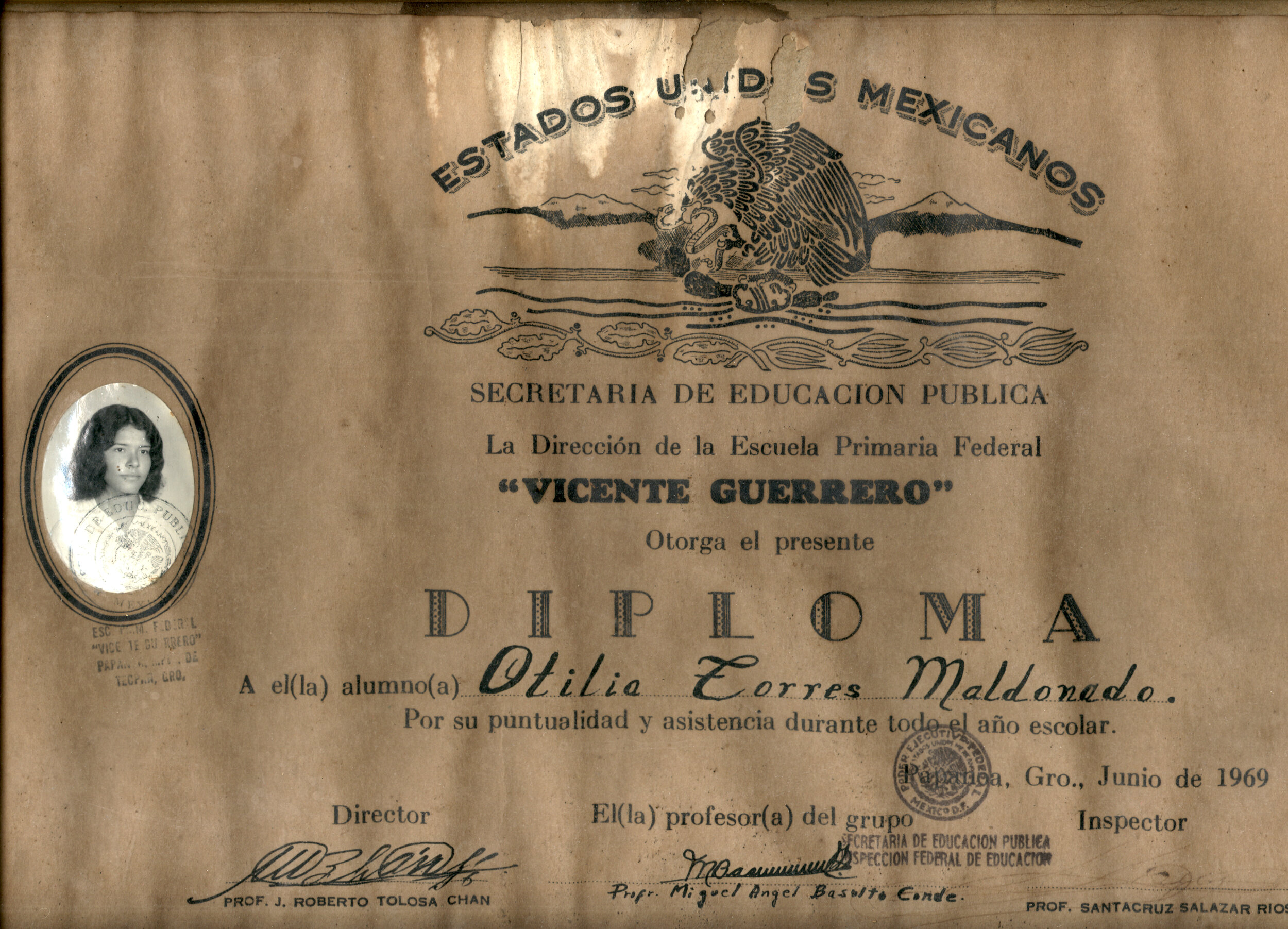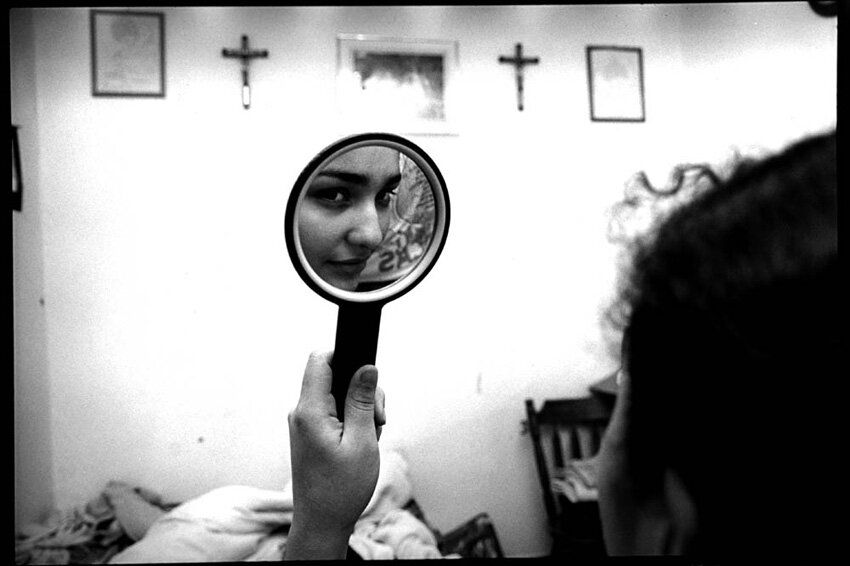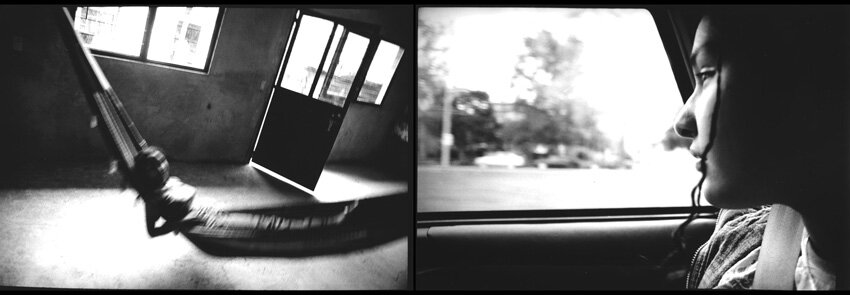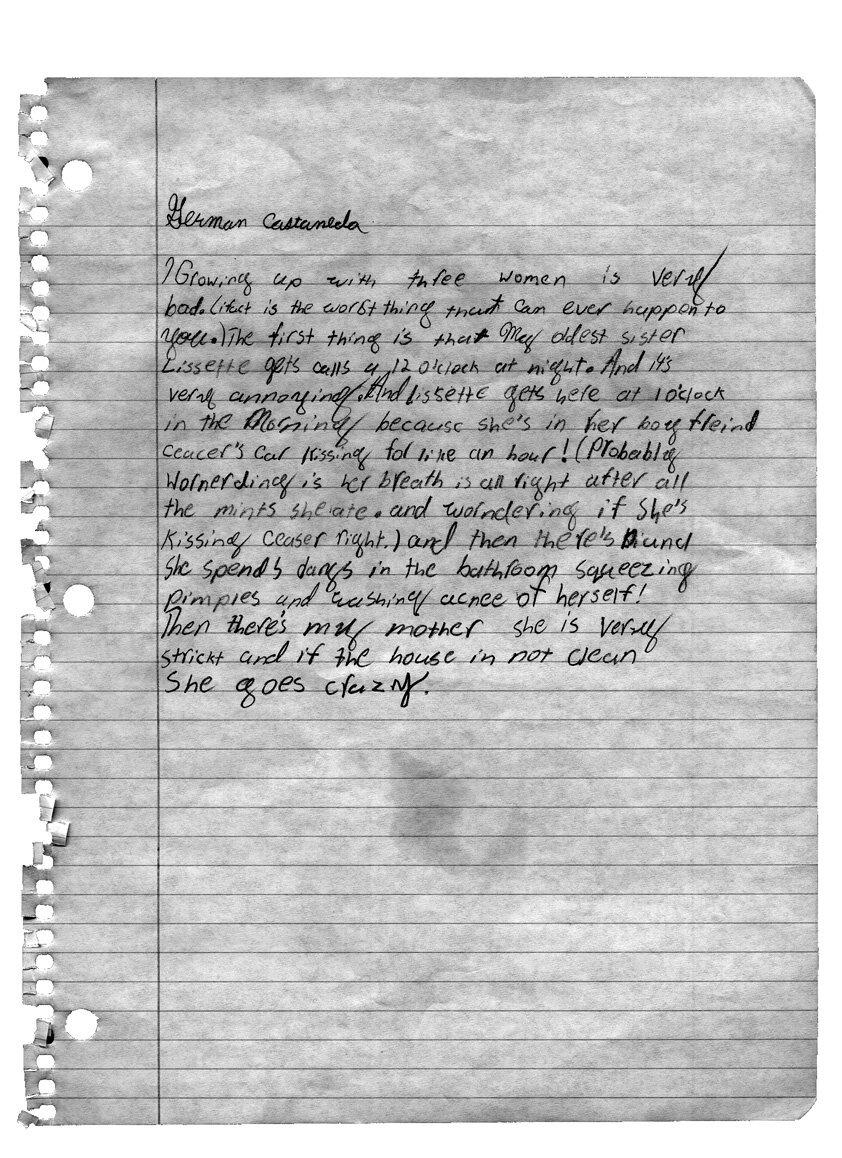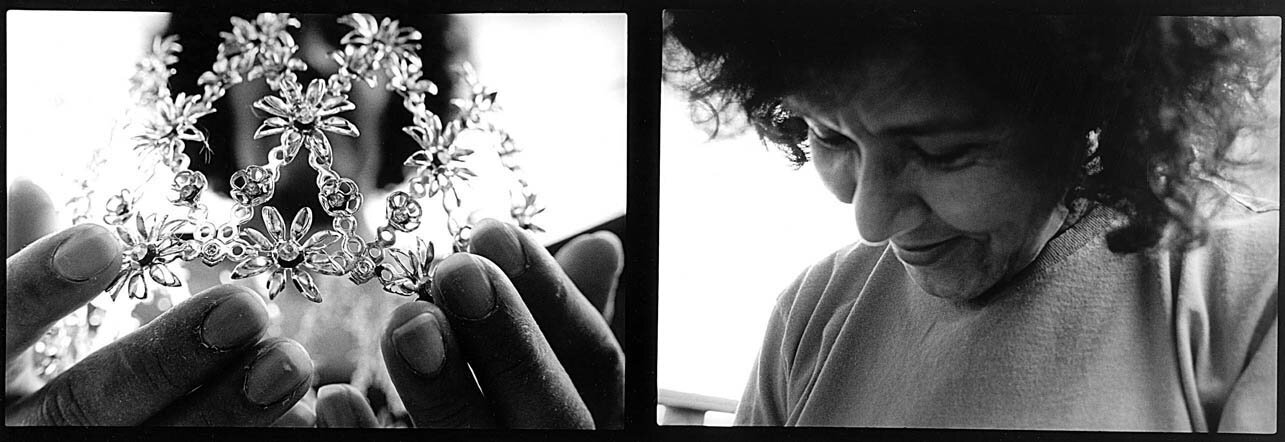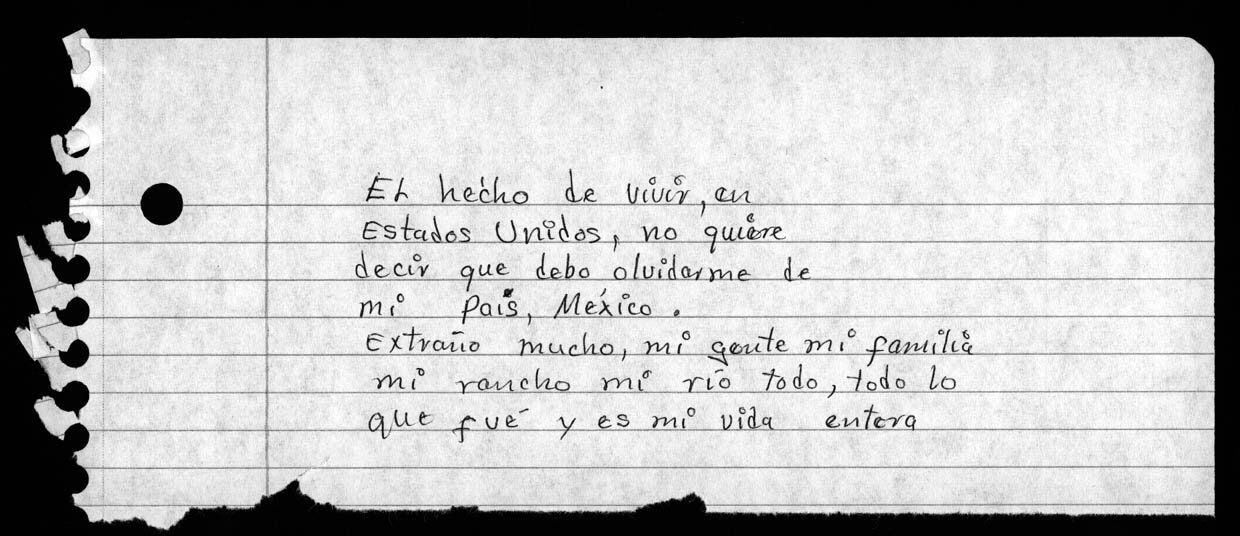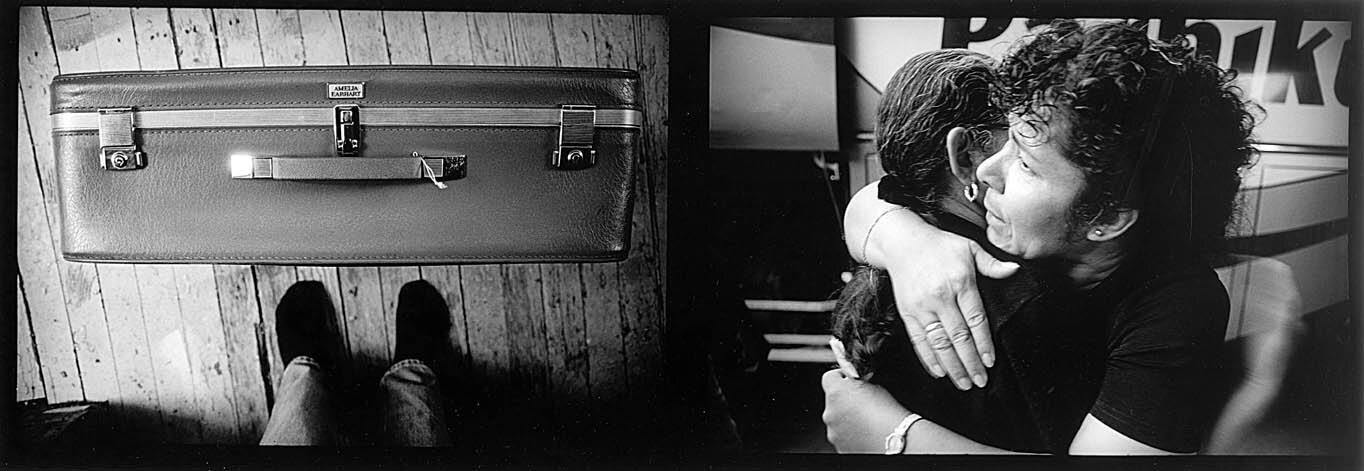
Just Because I Live in America….
a collaboration between Tone Stockenström and the Castaneda-Torres Family
Tone Stockenström an immigrant from Sweden began her project titled: Just Because I Live in America, in 1999. This body of work is an intimate journal of the Mexican-American members of the Castañeda-Torres family: Otilia and her three children, Lissette, Diana and German. This body of work seeks to understand their experiences of living between two cultures, of being caught in a limbo between the past and the present.
“Just Because I Live in America,
doesn’t mean I should forget my country, Mexico. I miss very much my country, my people, my family, my farm, everything that was and is my whole life.” Otilia Torres
“Tone Stockenström’s
remarkable work reminds me of some of the masters who capture the spirit of the Outsider. Her work in places as removed as Latin America and her portraits of the Other Americas reveals truths of the lives of those whom we must know better. Tone Stockenström helps with her craft to make us better humans.” Studs Terkel

“ Tone Stockenström’s Just Because I Live in America is the poignant chronicle of the Castaneda-Torres family who left their hometown in Mexico for a very different life in Chicago. Torn between the two places, missing their extended family, otilia and her three children nevertheless forge ahead. The photographs are accompanied by written testimonies from each family member. “Just because I live in America,” writes Otilia in Spanish, “doesn’t mean that I should forget my country, Mexico. I miss very much my people, my family, my farm, my river, everything, everything, that was and is my whole life.” She worries about her children not being close to their grandparents: “they would feel better because they would feel much more important.”
In English, her teenage daughter Diana writes “I feel I am 50% American and 50% Mexican.”
And her sister Lissette writes that the 1986 amnesty for undocumented workers “did a great thing for my family… what people who are against immigrants always have to remember is that we are a country that was built on immigrants.” Little German just revels in being the youngest child, and the only boy. But divorce has separated him from his father, and among the most heartrending images of this series is the diptych Goodbye, in which German watches his father leave after a visit, and the farewell embrace.
Stockenström’s photographs are understated and intimate. Fluent in Spanish, she has become close to the extended Castaneda family and even traveled home to Mexico with them. In one lovely picture, Otilia’s out-of-focus face is almost invisible and in the foreground, the tips of her fingers form a frame as she displays the crown she won as Queen of the Spring in Papanoa, Mexico. In a diptych, her hands tracing and writing the family genealogy are paired with her hands holding a large tattered studio photo of her father, a handsome, anxious-looking man. The pictures taken in Mexico are more carefree, less emotionally charged. A hen is lifted off the eggs she has laid in an old car; two Chihuahua dogs peer over a roof. Lissette, seen from the back, gazes out from a porch into a Mexican neighborhood, her longing to remain there almost palpable.
Stockenström is playing with different ways of exhibiting and combining these images, to bring out varied meanings. The diptych form serves her well, permitting her to make subtle comments through juxtaposition, as in Halloween, where Otilia points to a photo of German and his father on the left, and the child appears in a sad alien mask on the right. Another installation grouping contrasts the view from the family home in a working class Chicago neighborhood and the rushing river in Mexico. In an image that mediates between the two places, a large suitcase stands at the ready, with a girl’s stockinged feet and jean legs facing it. Otilia eloquently describes her dislocation when she says she feels “like a feather in the air, like a bird that has no tree in which to make it’s nest.”
Lucy Rowland Lippard is an American writer, art critic, activist, and curator
